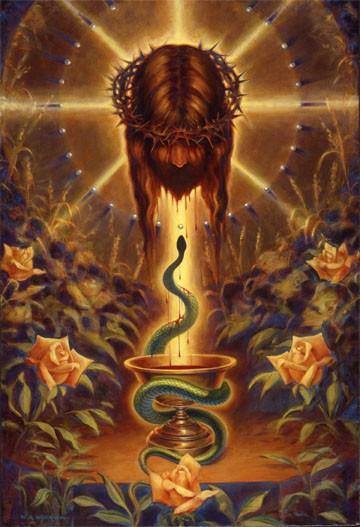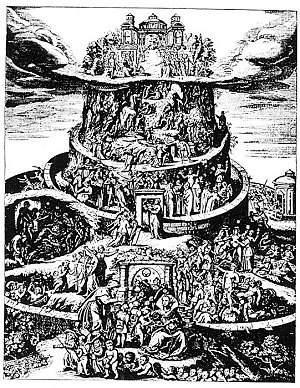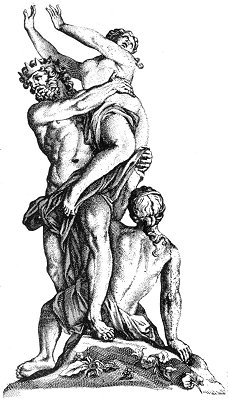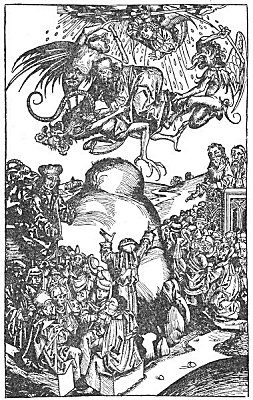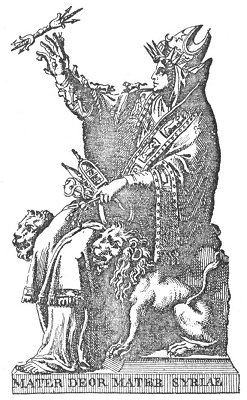In a religious disturbance which recently occurred in one of the Spanish-American provinces, there were found upon the bodies of some of the killed, passports signed by the Bishop of the Diocese and addressed to St. Peter; bidding him “admit the bearer as a true son of the Church.” It was subsequently ascertained that these unique documents were issued by the Catholic prelate just before his deluded parishioners went into the fight at the instigation of their priests.
In their immoderate desire to find evidence for the authenticity of the New Testament, the best men, the most erudite scholars even among Protestant divines, but too often fall into deplorable traps. We cannot believe that such a learned commentator as Canon Westcott could have left himself in ignorance as to Talmudistic and purely kabalistic writings. How then is it that we find him quoting, with such serene assurance as presenting “striking analogies to the Gospel of St. John,” passages from the work of The Pastor of Hermas, which are complete sentences from the kabalistic literature? “The view which Hermas gives of Christ’s nature and work is no less harmonious with apostolic doctrine, and it offers striking analogies to the Gospel of St. John. . . . He (Jesus) is a rock higher than the mountains, able to hold the whole world, ancient, and yet having a new gate! . . . He is older than creation, so that he took counsel with the Father about the creation which he made. . . . No one shall enter in unto him otherwise than by his Son.”
Now while — as the author of Supernatural Religion well proves —
Page 244
there is nothing in this which looks like a corroboration of the doctrine taught in the fourth gospel, he omits to state that nearly everything expressed by the pseudo-Hermas in relation to his parabolic conversation with the “Lord” is a plain quotation, with repeated variations, from the Sohar and other kabalistic books. We may as well compare, so as to leave the reader in no difficulty to judge for himself.
“God,” says Hermas, “planted the vineyard, that is, He created the people and gave them to His Son; and the Son . . . himself cleansed their sins, etc.”; i.e., the Son washed them in his blood, in commemoration of which Christians drink wine at the communion. In the Kabala it is shown that the Aged of the Aged, or “Long-Face,” plants a vineyard, the latter typifying mankind; and a vine, meaning Life. The Spirit of “King Messiah” is, therefore, shown as washing his garments in the wine from above, from the creation of the world. Adam, or A-Dam is “blood.” The life of the flesh is in the blood (nephesh — soul), Leviticus xvii. And Adam-Kadmon is the Only-Begotten. Noah also plants a vineyard — the allegorical hot-bed of future humanity. As a consequence of the adoption of the same allegory, we find it reproduced in the Nazarene Codex. Seven vines are procreated, which spring from Iukabar Ziva, and Ferho (or Parcha) Raba waters them. When the blessed will ascend among the creatures of Light, they shall see Iavar-Zivo, Lord of LIFE, and the First VINE! These kabalistic metaphors are thus naturally repeated in the Gospel according to John (xv. 1): “I am the true vine, and my Father is the husbandman.” In Genesis (xlix.), the dying Jacob is made to say, “The sceptre shall not depart from Judah (the lion’s whelp), nor a lawgiver from between his feet, until Shiloh (Siloh) comes. . . . Binding his colt unto the vine, and his ass’s colt unto the choice vine, he washed his garments in wine, and his clothes in the blood of grapes.” Shiloh is “King Messiah,” as well as the Shiloh in Ephraim, which was to be made the capital and the place of the sanctuary. In The Targum of Onkelos, the Babylonian, the words of Jacob read: “Until the King Messiah shall come.” The prophecy has failed in the Christian as well as in the kabalistico-Jewish sense. The sceptre has departed from Judah, whether the Messiah has already or will come, unless we believe, with the kabalists, that Moses was the first Messiah, who transferred his soul to Joshua — Jesus.

Moe is the founder of GnosticWarrior.com. He is a father, husband, author, martial arts black belt, and an expert in Gnosticism, the occult, and esotericism.

